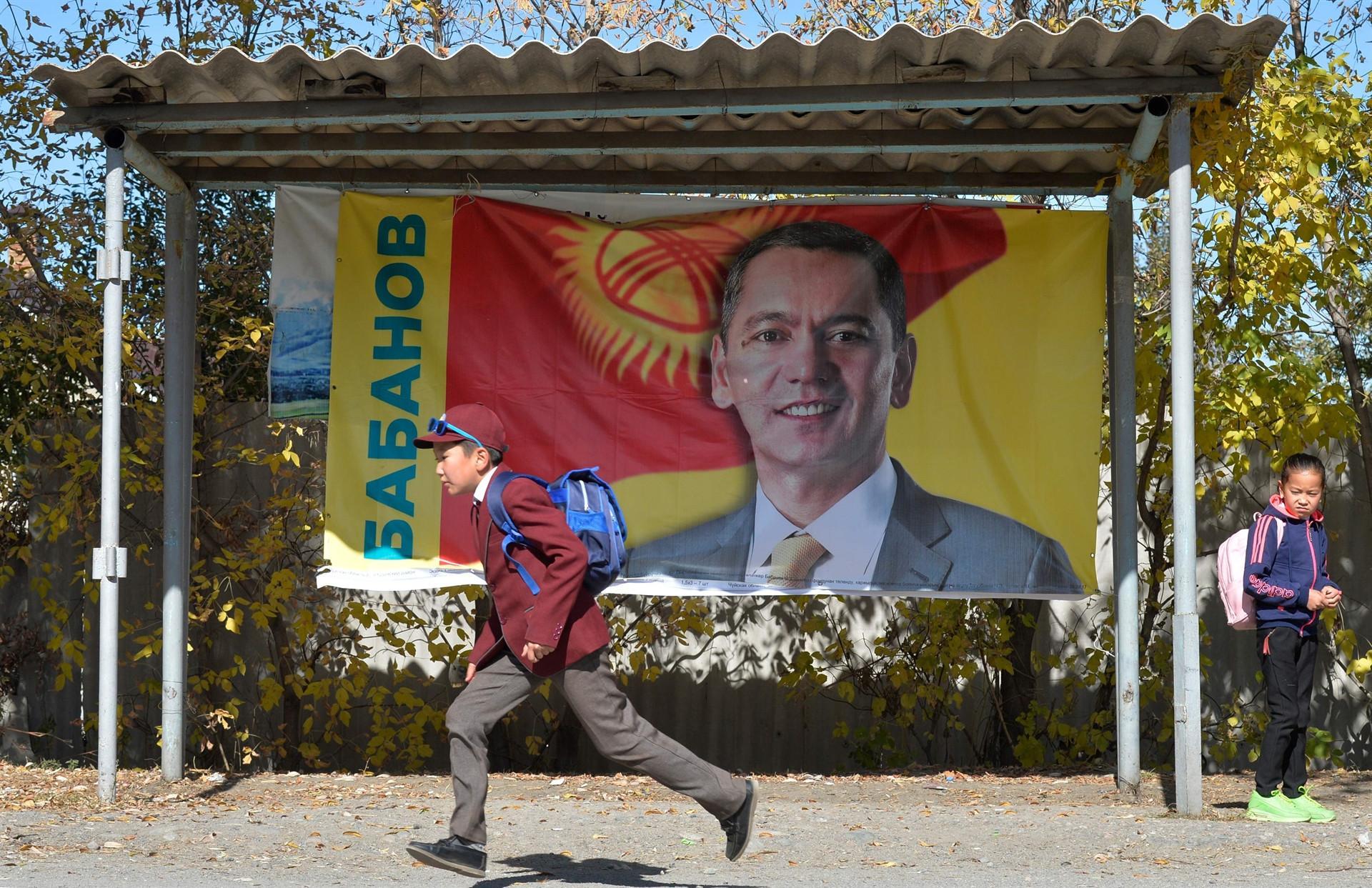Kyrgyzstan gears up for closely fought presidential poll
BISHKEK, Kyrgyzstan – Agence France-Presse

Voters in ex-Soviet Kyrgyzstan will go to the polls on Oct. 15 to choose their next president in a toughly contested election setting the Central Asian country apart from its deeply authoritarian neighbors.
The journey from uprisings in 2005 and 2010 to a vote that could secure an unprecedented peaceful transfer of power between two elected presidents has not been easy for the landlocked nation of six million.
President Almazbek Atambayev's six years at the helm of the country, which is dependent on Russia for political support and looks to next-door China for loans and much-needed investment, have been dogged by intrigue, crackdowns and upheavals.
His own election in 2011 came on the back of political and ethnic violence that left hundreds dead.
But now Atambayev, 61, is stepping down to let 11 candidates fight for a single-term constitutional limit that contrasts sharply with the rule-for-life political culture that exists in neighboring Kazakhstan and Tajikistan.
Alongside the democratic push, however, the voting raises familiar fears over instability.
"If mishandled, this election could shatter Kyrgyzstan's facade of democracy. A fragile stability is at stake," said Deirdre Tynan, Central Asia project director for the International Crisis Group.
"Despite technical progress in how votes are cast on the day, the system remains based on smear campaigns, vote-buying, coercion and the use of administrative resources," Tynan told AFP.
"The atmosphere is increasingly tense."
The two clear favorites in the race are Atambayev's close political ally Sooronbai Jeenbekov and oligarch Omurbek Babanov.
Their rivalry has been described by analysts as a contest between Babanov's deep pockets and the administrative leverage enjoyed by Jeenbekov due to his ties to the president.
"While we have some considerable information about Babanov and his political views, we cannot say the same about Jeenbekov," said Asel Doolotkeldieva, a political analyst and senior lecturer at Manas University in the capital Bishkek.
But whoever wins on Oct. 15, Doolotkeldieva said she does not expect big reforms.
Nor does the analyst anticipate post-election changes to a foreign policy line that has tilted strongly towards Moscow and Beijing under Atambayev, who in 2014 cancelled the lease on a U.S. military base used for Afghan operations.
Both low-key Jeenbekov, 58, and charismatic Babanov, 47, served as prime ministers under Atambayev.
The pro-government media has worked hard to paint the younger candidate as unpatriotic and untrustworthy, an often effective strategy in a country where vast wealth is generally associated with corruption.
The smear attacks on Babanov increased after the former oil trader appeared to secure a pre-vote endorsement from neighboring Kazakhstan's long-reigning autocrat Nursultan Nazarbayev last month.
"I don't feel attached to any of the candidates," said Polad Suleimanov, who runs a veterinary clinic in Bishkek.
"But I like Babanov least of all. The presidency is just a business project for him to invest in now and reap profits from in the future."
Regional divisions, enhanced by the country's mountainous geography, are destined to play a role in the election.
Babanov expects to win the vote in his native northwestern Talas province while Jeenbekov can expect considerable support in his southern Osh region.
The popularity of other presidential hopefuls such as Temir Sariyev -- another ex-prime minister -- and ex-speaker Adakhan Madumarov, increases the chance of a second-round run-off.
That is a prospect many dread, after post- election political confrontations saw two consecutive presidents toppled in 2005 and 2010 followed by eruptions of inter-ethnic violence in the south of the country.
"Let someone win on Sunday and allow us to get on with our lives again," Marat Babakulov, a farmer from the Chui province told AFP on the outskirts of Bishkek.
"A million of our citizens are forced to go to Russia to find jobs. All we want is peace and an economy that works."
















